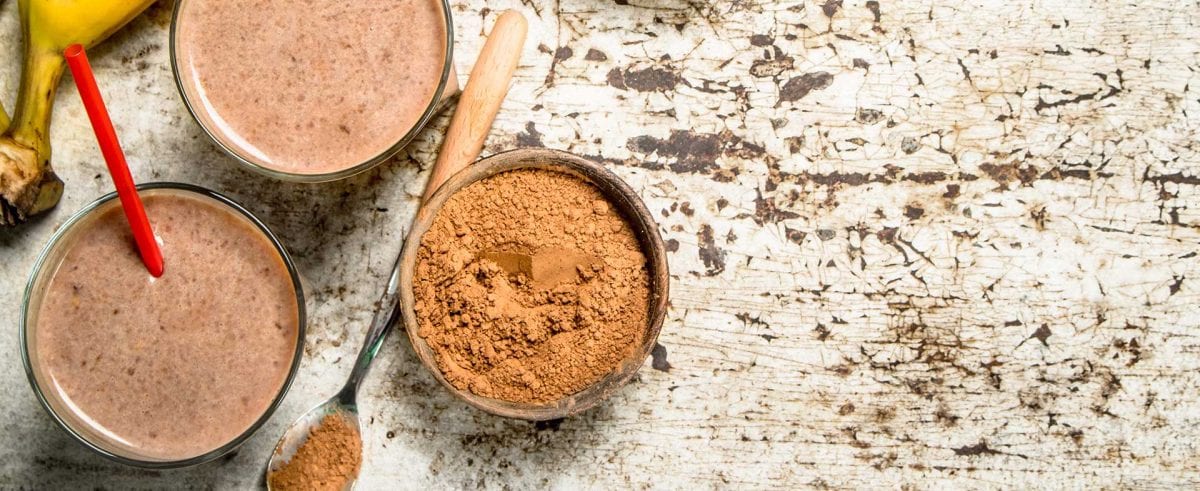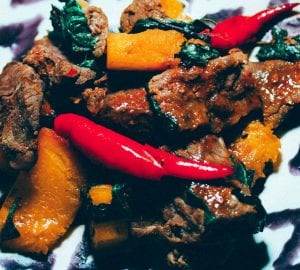Sports supplements and protein powders have hit the market in a large way with lots of people buying and using them to increase their sports and health performances, but which protein powder is best for me? And are there certain types that are better than others? In our guide, we have all the information you will need to choose the perfect supplement powder for you.
Do I need to supplement my diet with protein?
Most people already get enough protein in their diet which is around 0.75 per kg of body weight, this is by consuming a balanced and healthy diet. Some people may benefit from increasing their protein intake, the use of protein shakes, and powders are a quick and easy way to do so.
You could benefit from consuming protein if:
- You live an active lifestyle and want to maintain muscle mass.
- You want to build on your muscle and strength
- Your diet is carb-heavy so doesn’t contain much protein
- You’re training for a sporting event such as swimming, weightlifting, or a marathon.
How much do I need?
The amount of protein that your body needs is based on the type of activity you are going to complete and this is measured per gram per kg of your own body weight. This means that a small person with something like a desk job would need a lot less protein than someone who is taller and heavier who participates in sport.
The table below will show you how much protein you should be consuming day to day:
Activity Amount of protein No to little activity 0.75g Endurance athletes 1.2g Team sports 1.5g Muscle gain 1.8g Muscle gain and weight loss 2.0g
If you are wanting to increase your protein intake there are a number of different ways you can do this.
One way can be to simply increase the consumption of protein you have at mealtimes, this could be with lean meats, soya products, beans, fish, whole grains, and other items that are similar. Another way is to use protein powders or high-protein meal replacement shakes that can quickly and efficiently increase your protein intake.
You could even do both which would significantly increase your protein intake, but it all depends on the kind of activity you are doing.
Which is the best protein powder for me?
There are loads of different budget protein powder available online to choose from, but there are a few pro’s and con’s to consider before finally going with one;
Whey protein powder
Whey protein is by far the most popular choice when it comes to the supplements available on the market. It is the by-product of turning milk into cheese and is a complete protein.
Pros:
- Complete protein
- Concentrated and isolated whey protein
- Helps muscle growth
- Digests quickly to support muscles after working out
- Fills you up
- Contains BCAAS leucine, isoleucine, and valine, which are particularly useful for muscle growth when coupled with exercise
- cheap
Cons:
- Contains lactose so is not suitable for lactose intolerant people, vegans, or people with dairy allergies.
Casein protein powder
Casein protein is another product created from the production of milk. It can both isolate or concentrate the protein that is found in milk from fats and carbohydrates.
Pros:
- A high-quality protein source
- A high percentage of protein
- Digests slowly
Cons:
- Contains lactose so not suitable for vegans, intolerant people, or dairy allergic people.
Soy protein powder
Soy protein is made from soybean flakes that have their fats removed and washed in alcohol or water. This removes their dietary fibers and sugar. It is a complete vegan protein.
Pros:
- High protein percentage
- Promotes muscle increase
- can help raise ‘good’ HDL cholesterol and lower ‘bad’ LDL cholesterol
- Suitable for vegans and people with dairy allergies
- Gluten-free
Cons:
- not suitable for those with soy allergy
- Phytates can decrease mineral absorption
Hemp protein powder
Hemp protein is created by pressing ground hemp seeds. A complete protein containing all the essential amino acids.
Pros:
- Full of fiber
- Easy to digest
- Has BCAAs that support muscle growth
- Contains healthy fats that contain omega 3 and 6
- contains phosphorous, magnesium, iron, calcium, manganese, copper, and zinc
- dairy-free protein suitable for vegans and vegetarians
Cons:
- Can shock the digestive system if eaten too fast.
- An earthy flavor.
Rice protein powder
Made from rice and contains all the amino acids, but is still incomplete as it only has a small amount of lysine inside.
Pros:
- A high percentage of protein
- Digested easily and contains lots of fiber
- Suitable for vegans and vegetarians
- Free from dairy, gluten, and lactose
- Contains lots of B vitamins
- Doesn’t contain soy
- Keeps you fuller for longer with slow digestion
- Sustainable protein
Cons:
- An incomplete protein so should be combined with a seed or legume protein such as hemp or pea to contain all the needed nutrients
- Digests slowly so won’t take effect straight after working out
Pea protein powder
Pea protein powder is usually sold in an isolated form that contains high-levels of carbohydrates. Once it has been isolated the final results have smaller levels of carbohydrates with a higher percentage of complete protein. It is normally found in yellow pea form.
Pros:
- A complete plant-based protein containing all 9 essential amino acids
- A high amount of protein
- A good choice for soy intolerant people.
- Suitable for vegetarians and vegans
- Digests easily
- Contains lots of iron
- Gluten and dairy-free
- Has low fiber levels due to the isolating process, this means it is less likely to cause bloating or wind
Cons:
- Not the nicest texture compared to some others available.
Which protein powder is for me?
Choosing a protein supplement is completely a personal choice that is based on your individual goals and dietary requirements. If you are looking to bulk up, then a bulking protein that is going to help you put on weight is perfect, but if you want to lose weight, a low-cal diet protein powder would be a better choice.








